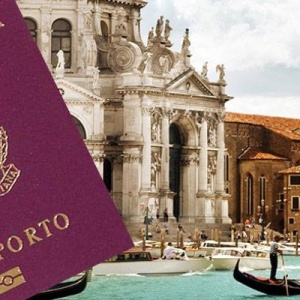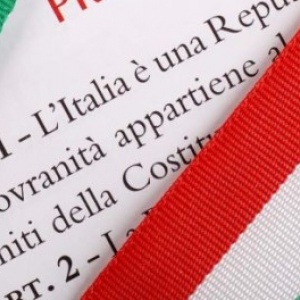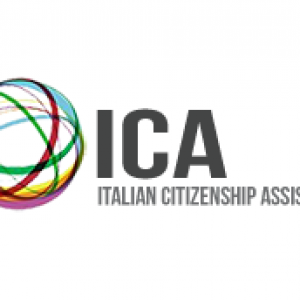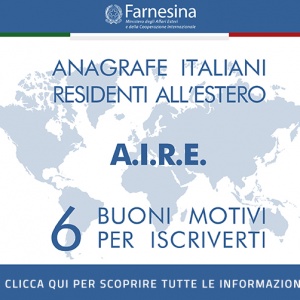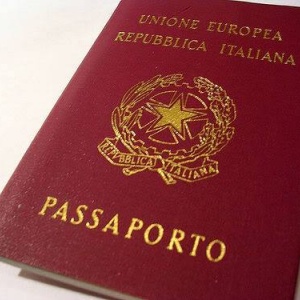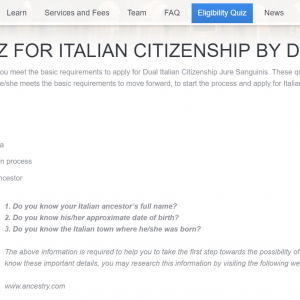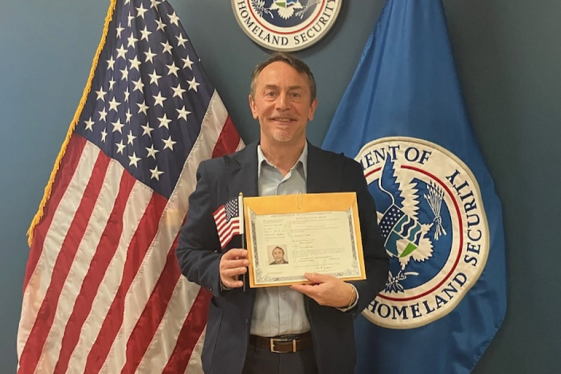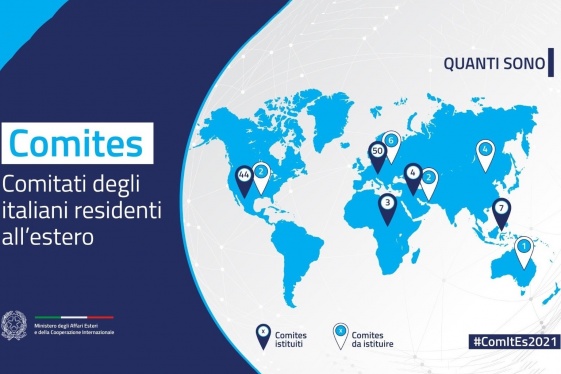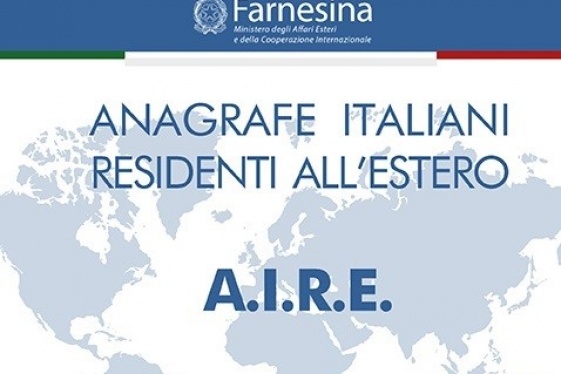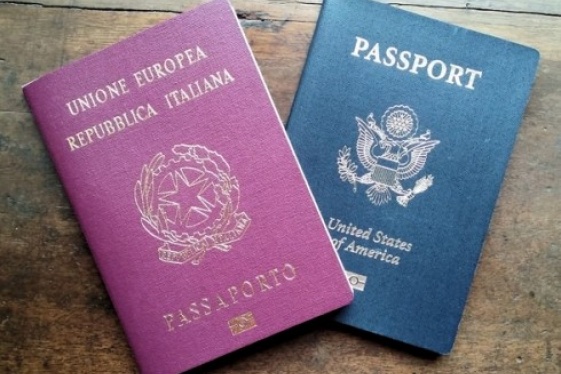
Marco Permunian (Co-founder and U.S. Office Director of Italian Citizenship Assistance)
Come ottenere il passaporto italiano: We the Italians sigla la partnership con Italian Citizenship Assistance

Dual citizenship is a very important topic for many members of the Italian American community. Through these years I’ve met and spoken with hundreds of Americans of Italian descent eager to officially become Italian citizens, ready to commit to an effort that requires patience, money, time and it is not easy at all.
I always tell them that no matter what the official laws say, they ARE Italian. But I understand that having a true Italian passport is something matchless. That is why We the Italians and I personally are so happy to announce a new partnership with Italian Citizenship Assistance, the best of the best in this field. We have two kinds of discounts. All those interested in the 10% discount for our readers please use the code WTICA and email us at [email protected]. This discount is valid up to August 31st, 2019. From September 1st, 2019 the discount we will grant a 5% discount, with the code ICAWTI. This interview is with our friend Marco Permunian, co-founder and U.S. Office Director of our new partner
Marco, first of all, I’d like to ask you to briefly describe to our readers the law that regulates the different ways to acquire Italian citizenship.
Acquisition and recognition of Italian citizenship is something that is governed by a number of different laws depending on the specific person's situation. For instance, factors that will play a key role in determining what path to citizenship will be: if the person is of Italian descent; if the potential applicant is not of Italian descent but married to an Italian citizen; if the individual of Italian descent is already a citizen of the European Union; if the person is not of Italian descent and not already a citizen of another EU nation.
In the case of many people who are of Italian descent, they are able to make a petition and claim Italian citizenship through a set of rights and rules governed by what is called Jure Sanguinis (by right of blood), more commonly known as citizenship by descent. It is an integral part of how citizenship is acquired by birth. In the past few years, since the beginning of the European Migrant Crisis, Jure Sanguinis has become quite a hot topic in Italy. People who are able to gain citizenship by Jure Sanguinis are in fact recognized as Italian citizens to all intents and purposes.. Whereas, the system in the United States for citizenship is based on a combination of what is called Jus Soli (by right of soil) and Jure Sanguinis (by right of blood).
Because of the direct effect mass emigration had on the nation, the Italian government recognized the importance of keeping the doors open to those who wanted to return to their homeland and paved the way for one of the most open paths to citizenship by descent in the world. Many countries that have a legal system that allows for citizenship by descent or that have a law of return only allow for citizenship to be claimed only through the 1st or 2nd degree (Parents/Grandparents). For example, American citizenship can only be passed from parent to child, Irish citizenship can be passed down by making a claim through a grandparent, while Italy at this point in time has no generational limits on how far a person can go back to make a claim. The only condition is that the ancestor of the petitioner must have lived in Italy after the formation of the modern unified Italian state (March 17th, 1861). Prior to that, the Italy we know today was separated into smaller warring states. There are some regions of Italy that did not join until after World War I. For example, Trentino and Alto Adige (also known as Südtirol/South Tyrol) since they were a part of the Hapsburg Empire and a part of Austria. This means that for people whose families would have come from areas such as these, there would be other limitations, including a later date (later than 1861) when their last ancestor needed to have lived in Italy in order to be recognized as an Italian citizen.
Among the group of people who are eligible for Italian citizenship, are a group who can only make a claim through a female ancestor who gave birth before January 1st, 1948. People who would be required to go through a female ancestor like this must go through a judicial process commonly called a “1948 case”. While it may seem like a daunting task, these cases are actually often more straightforward than Jure Sanguinis, because it has established a path of moving forward which is more clearly defined. The “1948 case” process, unlike a normal Jure Sanguinis petition, can necessitate professional assistance to take your case to court. While it is possible to be represented by any attorney, especially if you have a difficult case, it is recommended to choose an attorney who specializes in Italian Citizenship claims.
But there may be another option available to some. For example, if a person has Italian ancestry but unable to make a claim through Jure Sanguinis, and if that persons grandparents were their closest family relation to have lived in Italy, that person may be eligible to apply for Italian citizenship after three years of legal residence in Italy. After those three years, assuming all of their paperwork is in order, they would then be eligible to apply for naturalization. When talking about citizenship through residency, this is one of the fastest ways to become an Italian citizen. Even citizens of European nations have a requirement of a minimum of four years of residency (ten for non-European citizens).
You mentioned the option for people who are married to Italian citizens, would you mind briefly touching on that?
Yes of course. Another popular way of gaining citizenship is through what is called Jure Matrimonii, citizenship through marriage to an Italian citizen. This is something that is of interest to many people who wish to move to Italy or the EU with their Italian spouse. Italy's laws in regard to citizenship by marriage are actually quite generous in comparison to many countries around the world. In regard to the spouse of an Italian citizen living in Italy, the couple only needs to be married for 2 years but if they live outside of Italy, they need to be married for 3 years. If the same couple has children together, the time is cut in half which means 1 year of marriage if residing in Italy and 1.5 years if residing abroad. As a side note, Italy not only recognizes the unions of heterosexual couples but Italy also recognizes same-sex unions.
I have been reading that a new set of rules that have recently been approved. Is that so?
Towards the end of last year, a circolare (official public memo) was released by the Italian government stating a few changes for those who are interested in Italian citizenship through naturalization (i.e. through residency and Jure Matrimonii), not those eligible through Jure Sanguinis or able to make a “1948 case”. The new updates mostly have to do with a new linguistic requirement, new minimum processing times and an update to the application fee.
A new linguistic requirement has been introduced: B1 level certification in the Italian language. In short, B1 is considered to be the “lower” intermediate level of proficiency in the Italian language. In theory, mastery of this level should give you the basic linguistic skills needed for daily life in Italy.
Besides, if previously the processing time for citizenship naturalization applications was up to 24 months, under the new set of rules this limit has risen to 48 months, for applications not concluded by December 5th 2018.
There has also been an update to the costs as well. The new application processing fee has been increased from €200 to €250.
What are the benefits of Dual Citizenship?
There’s lots of them. For instance, the freedom of movement within the Schengen area without a visa is one of the most well known. With that also comes together the ability to reside around the European Union and have an easier time to get into a number of other countries in the European Economic Area including Switzerland, Norway, Iceland and Liechtenstein.
Having Italian Citizenship also can help you to get special pricing or discounts on education within the European Union and potentially entitle you to Italian and EU grants to be used towards education and cultural activities. Around the European Union, education costs are much lower than the US.
When it comes to culture and cultural education as well as events, many Italian high school students are eligible for a €500 grant which can be used to see a play or opera or movies, or to buy online books and music on Amazon. Even a special Spotify portal has been created for students with this grant.
You briefly mentioned the freedom of movement. Please tell us more about this, I’m sure our readers would be quite interested to hear more
Absolutely. As a citizen of Italy, with the freedom of movement one has the possibility of reside and being employed across the European Union without any special visas or permission. There is a central set of protections set out by the European Commission for workers in Europe including access to social benefits and welfare in the case of a work accident. Social benefits aren’t only limited to those who are European citizens working in another European Union country.
An additional benefit of Italian Citizenship is having access to the healthcare system throughout Europe. This includes being able to travel around Europe with your healthcare card and to be able to access emergency services as though you were at home. People who choose to reside in Italy get to take advantage of one of the best healthcare systems in the world! Not only is Italy able to boast high-quality health care, but in comparison to the United States, the costs are significantly less.
Regardless of citizenship status, even emergency room visits in Italy are very low cost by comparison. Ambulance rides are almost always free. General doctors visits are also included at no extra charge as part of the national/regional healthcare systems. For those that live on low or no income, it is even possible to get vouchers which entitle you to a number of tests per month without any fees. Healthcare in Italy is considered a top priority and a right given and protected by the Italian constitution for the public interest of the nation.
Being a citizen of Italy gives you the right to vote in Italian elections, local and national. If you reside in Italy or another European Union country, you also have the ability to vote in European Union elections.
Traveling in and out of Europe with an Italian passport allows you to go through priority fast track European lanes which significantly shorten wait times at security and passport control when arriving in Europe.
A lot of people seem to enjoy the color Italian passport and the prestige of being the owner of an Italian passport: they think it’s also “cool” to have an Italian passport. Around the world, Italy is famous for its history, culture and arts, and some people enjoy being “part of the same club”. You would be surprised how often I have heard this. Actually, the Italian passport is one of the most powerful passports in the world. Currently, it’s tied for #3 with a few other countries based on the amount of countries holders of these passports can travel to visa-free.
Aside from the benefits, why do Italian Americans want to become Italian citizens going through a long and difficult process that usually cannot be pursued without assistance?
Firstly, I would like to say that it is possible to do it by yourself without assistance: but it’s a very hard way. A member of my team completed the process all by himself, before we came into contact. When I asked him about this, he immediately told me that he would most definitely work with a service if he had to start over from the scratch. He shared with me the horror stories of being misguided and spoke about all the errors that were made by supposed professionals in the legal field who didn’t have an understanding of the intricacies of the process. He had to repeat the same things multiple times due to being misguided, things that he wouldn’t have had to think twice about if he had the proper assistance. In the end the errors that were made cost him a significantly higher amount than what he would have paid using the services that Italian Citizenship Assistance offers. Sadly there are still many out there that give up without knowing that the difference between a successful petition and a rejection could be one simple document. This is where the professional opinion of someone familiar with the nuances of Jure Sanguinis would be able to potentially find a solution to a problem quite quickly because of their expertise, experience and familiarity with the process.
I believe many Italian Americans have this desire due to how passionately they feel about their background and heritage. The Italian one is one of the strongest ethnic identities in the United States. This is very often the case even for second, third and fourth generations born in the US (even if they’ve never been to Italy and don’t speak Italian or the dialect their ancestors spoke). It can be quite shocking to many of them who come to Italy for the first time to find out that many Italians don’t see them as Italians. For some reason, the Italian cultural/ethnic identity is something that just doesn’t dilute even if a person is only 1/4th Italian. That person might still consider him/herself as fully Italian, especially if they had the influence of an Italian parent, grandparent or community around them. Even though there may be a difference between modern Italian culture and Italian American culture, there’s something that connects them both.
The citizenship process can be very complex because it requires the procurement of several documents related to an ancestor that was born in Italy and left and other ascendants. In a large number of cases, this involves ancestors who left Italy before 1900. With needing to procure these documents comes the ability to be able to look at history with practical implications in your own life and is a great opportunity to discover your own family history. I have seen people become quite emotional or even having tears brought to their eyes, seeing and holding even just copies of these documents for the first time. These are amazing moments not only for them but it is also a great privilege to be part of this whole process and to be able to share those moments with our clients.
In most cases, our genealogists are able to dig up information that our clients were not even aware of and in some cases, American Naturalization documents included a photo of the new citizen and for some, it’s the first and only photo of their ancestor that they have ever seen. Again, another emotional experience for many. These old documents can be a window to the past and shed light on details that a person may never have known about their ancestor which leads to the desire for more research. It is possible to have an ancestor who grew olives and through more research find that the olive grove still exists. It could be that not only does it still exist, but that it is being run by a distant relative who is also a direct descendant of the parent of your last living relative who lived in Italy. The family stories amaze me each time our clients discover new pieces of information connecting them with another part of their own history. Some families had multiple people leave Italy, but not all who left Italy went to the US, there have been cases of people from the US finding 3rd and 4th cousins spread out around the world because their Great Grandfather went to the USA but his brother went to Brazil and his other brother went to Australia and another to Argentina but then relocated to the UK. It fascinates me to see the history of the Italian diaspora and the path the people took and how it is all coming full circle.
Getting back to the question. In short, the drive of our clients seems to come from a sense of pride in their ethnic identity that pushes many towards wanting to reconnect with their homeland and to leave that legacy for their children and grandchildren. It seems that over the last years that there has been a growing interest from families with young children wanting to relocate to Italy and raise their children in their ancestral homeland. By petitioning for citizenship while your children are still minors is actually something that can help to keep the costs down in the long run and in some cases remove the necessity of multiple appointments in various consular jurisdiction. Parents with minor children, rather than adult children, are able to automatically pass on citizenship. It may be advantageous to take care of this sooner than later. Although in some consular jurisdictions, the process is made much easier for adult children of Italian citizens who have claimed citizenship under Jure Sanguinis. Rather than needing to again produce potentially multiple generations of documents, it’s possible to make a claim directly through their parents.
Once one member of the family completes the process, it’s not uncommon for others to follow suit. We’ve also noticed an uptick in the number of people who not only want to claim citizenship to reconnect to their country and their past but also to be able to move to Italy and take full advantage of what their citizenship offers them.
Is there a story you've dealt with in your successful cases that explains this hunger for an Italian passport? And what about a funny one?
Yes, absolutely. A couple of years ago we had a wonderful client in her early 90’s who had been married to an Italian citizen, who unfortunately had passed away about 15 years prior to her contacting us. She was interested in making a claim for Italian citizenship by marriage, as she loved the country and its people so much. But mind you, she wasn’t actually of Italian descent. The love for Italy isn’t only limited to people of Italian descent. They had even lived in Italy with their children back in the 1950s. Even though she didn’t have any plans to live in Italy again, making a connection to the country was quite important to her. Because she had been married to her husband prior to 1983 she automatically qualified for Italian citizenship and not long after seeking Italian Citizenship Assistance’s assistance, she successfully completed her request through the Philadelphia consulate in the United States.
There are a number of cases where a person might fall in love with a European citizen and want to move to Europe. One case in particular that comes to mind is of a man from the San Francisco Bay Area who wanted to move to be with his significant other in the United Kingdom. It was very important to this client to be able to apply for citizenship on his own so he could be independent and be able to be together with his partner being able to legally reside in Europe. The relationship wasn’t quite at the stage where marriage was a consideration. This is for sure one case where the petitioner was able to take advantage of the freedom of movement that comes with European citizenship and we were able to successfully help him attain his gaining recognition of Italian citizenship to be able to join his partner living in the UK to be able to explore their relationship further.
Another story that comes to mind is in progress right now. We are currently working with a couple in their 60’s who are planning to retire in Italy. Their decision ended up inspiring their daughter and her spouse to pack up everything and to bring their children to Italy. Now all three generations are currently residing here in Rovigo, Italy where we our Italian office is located to make their applications. Once the process is complete they plan to move to their ancestral region and settle there. This family is part of the growing trend I was mentioning earlier, we’re finding more and more people are wanting to relocate to Italy permanently.
A last story I’m mentioning goes back a few years. We worked with a couple that also decided to apply directly in Italy with their two teenage daughters. They were from Australia and their plan was to live in Europe on a permanent basis and for the children to play soccer professionally. In order to keep their family business going to support themselves, the father had to shuttle back and forth to Australia. I have seen people make sacrifices and jump over many hurdles in order to accomplish their goal of living in Italy. In this particular case, the two daughters also happened to be real superstars when it came to playing soccer. They even trained with teams in Rovigo and the coaches immediately noticed their talents. Now the girls are grown up, and taking advantage of the benefit of being able to reside and work in another European country they are now playing soccer at the professional level in France.
From your point of view as an expert in the field, is there a legislative change that you would like to suggest to the Italian Parliament?
Yes, absolutely. Even though there is a great system in place, I personally feel that there is room for improvement. Namely, allowing people who are required to go through the legislative “1948 case” process to be able to make a petition at an Italian consulate or comune (municipality) like anybody else would through a more common Jure Sanguinis petition. There have already been cases that have determined it as unfair that these petitioners in the past weren't able to make a claim through a female ancestor which has lead to the 1948 path now being open. I would personally like to see the judgments that have already been made by a number of Italian judges to be reflected by the rest of the system and to remove the necessity of going to court and challenge and rechallenge the same legislation which has had a number of judgments made against it retroactively recognizing the legal equality of male and female ancestors (a right which has been recognized since 1948).
Another point is that because of the heavy workload that the Consulates and their staff are under, it would be a welcome change to see more Consulates possibly even subdividing the consular jurisdictions that already exist. Currently, with the number of files that are being processed by the Los Angeles Consulate (the busiest in the US) per week and how many people are interested in making a petition for citizenship by descent, some people are only able to make an appointment some years in advance. Steps have been taken to try and shorten these times. But unfortunately, while a lot has been done, I don’t personally feel that to be enough, because the Consulates are also limited in what they can do.
The number of people interested in Italian citizenship is growing exponentially year by year and I truly hope something can be done soon. The only alternative that I’ve heard, proposed by a dual US/Italian citizen on Youtube, that might be worth considering is the creation of an office dedicated specifically to handling Jure Sanguinis requests. Something based on the Israeli system for their law of return might be interesting to look at. The Israeli ministry of the interior has a whole department dedicated to new immigrants as it’s such a vital part of their society and growth of their economy.
Clearly, the needs of the two countries are very different, but Italy too could have an interest and maybe even benefit from the generations who left, became educated abroad and have the desire to return to their motherland and to give back and contribute however they can. Even some young people of Italian descent in their 20’s are interested in building a life and become working contributing members of society, pay taxes and do volunteer work. Many people of Italian descent also have an interest to invest and rebuild many of the old villages and breath life back into some parts of the country which have suffered due to mass emigration.
On your website, you offer a free eligibility test. What are the most common problems an Italian American can face in their journey for an Italian passport?
Yes. Our preliminary eligibility assessment is completely free of charge and without any obligations. We are also planning to introduce a new interactive eligibility test form on our website which can help people determine autonomously if they meet the basic requirements in the near future.
As far as common issues. One common issue is that many find that they are eligible but due to discrepancies in their documents, they might be required to have the documents amended. Unfortunately, this can be the case with older documents. It wasn’t uncommon for names to be misspelled or intentionally changed when an applicant’s ancestor arrived in their new country. The other common issue is to track down older documents which can sometimes require expert assistance. We can help successfully accomplish these tasks that sometimes can seem almost impossible to overcome.
For more information you can call 1-323-892-0861 or email ICA at [email protected] or visit www.italiancitizenshipassistance.com.
You may be interested
-
After 50 Years, Sayreville Icon Camillo Ianac...
Camillo Ianacone, owner of Camillo's Restaurant (31 MacArthur Ave., Sayreville), officiall...
-
Announcing: Italian Citizenship Service
The Italy-America Chamber of Commerce is pleased to announce the launch of a new Italian C...
-
Election to renew the Committee of Italians r...
The elections for the renewal of the Committee of Italians Residing Abroad (Com.It.Es.) wi...
-
Fiscal Codes for Italian Citizens that are Re...
For the Italian citizens registered with AIRE, you can request your tax code through the F...
-
Fucsia Nissoli in difesa dei pensionati itali...
Oggi ho depositato una Interrogazione a risposta scritta al Ministro della salute, Roberto...
-
ICA: 1948 cases update. Local courts in Italy...
Did you know that local courts in Italy have been granted the authority to process applica...
-
ICA: 1948 cases. Italian citizenship through...
In last month’s Italian Citizenship Assistance article, we covered Italian citizenship by...
-
ICA: 5 Ways to acquire Italian Citizenship
Welcome again to our Italian Citizenship Assistance column! In our previous article, we di...





